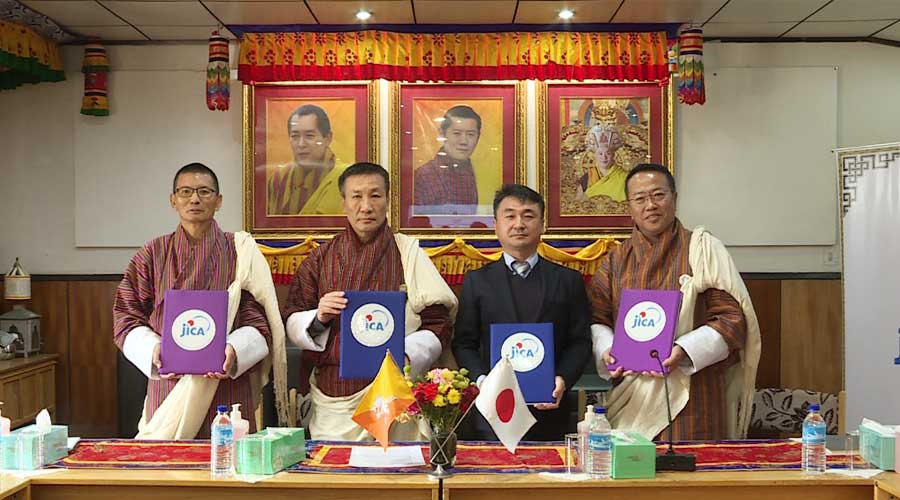
Over the next four years, the health sector in the country will receive a major boost in digitising its services to provide quality healthcare services to the public. To this effect, the Japan International Cooperation Agency and the Finance Ministry signed an agreement for the implementation of the project in the capital today.
The project will focus on improving healthcare services in Bhutan by using digital technology and health data. JICA will provide technical assistance to the IT professionals of the Ministry of Information and Communications (MoIC) to further digitise the health system.
The detailed planning of the project will begin in February next year, which is over two months from now.
The four-year project will revamp the Electronic Patient Information System or EPIS. Additionally, three new data banks like health bank, biobank and household bank will be developed. They will maintain clinical records, DNA, plasma and biological samples of patients.
Besides, they will collect data on individuals’ lifestyles and dietary habits and household information.
All these data will be integrated with the national digital id, which will improve the delivery of health services to the public through the early detection and prevention of diseases.
“Through the use of the national digital ID, we will be able to enable information sharing seamlessly across all government sectors,” said the Secretary of MoIC, Phuntsho Tobgay.
Taking reference from the recent health stats, the Secretary said 51 per cent of the Bhutanese population is suffering from Non-Communicable Diseases (NCDs) such as cancers, stroke, diabetes and heart diseases.
Thus, the Secretary further commented, “we have 69% of all death related to NCDs. And if we look at the budget expenditure, we have almost 41% of the total health budget focused on combating these ailments. So, this project will definitely have a far-reaching impact in terms of how we can enable preventive health care.”
His views were echoed by the Acting Secretary of the Health Ministry.
“We now need to focus much more on improving the data collection and also look at collecting biodata. We are already developing a system to collect medical data. So I think all these combined together will give us relevant, accurate data to look at what are our prevailing problems and what could be our future challenges,” highlighted the Acting Secretary for Health Ministry, Pemba Wangchuk.
Since NCDs are a growing public health concern, these data banks will also help researchers to come up with reliable research works.
“We are going to help set up the digital health infrastructure where the government officials and agencies and even private entities can access the data. By doing so, we can encourage the private entities to come to Bhutan and make an investment in the new field of services,” pointed out Yamada Tomoyuki, who is the Chief Representative of the JICA Bhutan Office.
The project is expected to be completed in 2027.
Kesang Wangmo
Edited by Pema Lhaden








